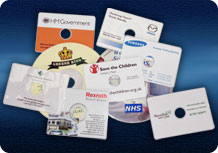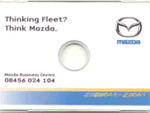Having a commercially successful website is ever increasingly important to businesses as the website moves centre stage in delivering corporate communications, be that the sale of products or services, liaison with suppliers, customers, after sales support or integration with back office systems for integrated accounts and stock handling.
However if your website is not showing highly in the top search engine results for your prime search phrases your business is missing out. This is shark infested waters for businesses looking for quality honest suppliers to provide effective and affordable optimisation of their websites so it is found by the search engines with their chosen key terms. There are companies that promise results and either fail to deliver, fail to deliver consistently or use techniques that could ultimately damage your reputation or brand online by having your web domain blacklisted.
Below are a few basic questions that are routinely asked to help you fill in the blanks when considering how to make your website work harder for you.
1. What is Search Engine Optimisation or SEO?
SEO stands for Search Engine Optimisation. It encompasses a raft of techniques and approaches to increase the readiness of your website to be understood and therefore categorised by the search engines.
2. What is an Organic listing?
An organic listing is the listing of one of your web pages in a search engine and it is included and ranked based on the search engines perceived merits of your web page and website. More and more it is apparent that the good quality websites that deliver great content and play by the rules are finding favour with the search engines.
3. What is Ethical Search Engine Optimisation?
Ethical Search Engine Optimisation or White Hat SEO is simply the use of good optimisation techniques that brings real benefit to the possible visitors to your site. The programmes that assess your site are getting ever more cleverer about rating what is good and penalising what could be seen as trying to take unfair advantage.
4. What are Black Hat techniques?
These are techniques that can be employed to spoof the search engines into thinking that your site is better than it actually is. Whilst we perceive that good SEO techniques should push the envelope, we strongly recommend stopping short of Black Hat techniques since should you be found to have used techniques, or have engaged someone who has used such techniques on your website, it can result in your page being penalised or even excluded from some or all of the major search engines.
5. Why does my website not show in the search results?
There is a raft of different reasons when this may be the case and here are a few for consideration:
- You may not have a search engine optimised design. Many designers create brilliant designs, but do not team up with equivalently skilled web partners who know how to write the code that delivers the site to the web browser.
- The site may not be written to be adequately readable by the search engines that you want to engender.
- The site or web pages could have missing or incongruous elements such that the search engine is confused about the content and purpose of the site.
- You or your web engineer may have strayed into inadvertently using Black Hat Techniques. And the site has been downgraded in response. You may not have submitted the site adequately as part of your post launch search engine marketing. (See http://blog.toucan-group.com/?p=17 for an extensive SEM program) .
6. What is Keyword research?
Keyword research is finding the right words that will deliver the highest number of visitors to your website possible. Believe me, a single “S” going from a singular to a plural can mean a tenfold difference in visitors.
To get to the optimum keywords the routine is to start with your instinctive choices, extract key words from top competing sites, then rank all those terms in order of real world usage. Then, by applying some instinctive personal understanding of the market place, together with an eye to how much the term is contended, draw up your final list. How this list is subsequently used is down to the skills of your web coder and copywriter who should work “hand in glove”.
7. How do I get recognised or ranked for specific keywords?
Apart from putting the right keywords in the right places you have to have the right keywords selected in the first place. Once the site is optimised and launched into the big wide world it needs to be promoted and this is where a comprehensive Search Engine Marketing programme needs to be put in place so the site is promoted and monitored properly. It not only needs to be promoted to the obvious search engines but also the niche directories and local gazetteer sites.
8. What is search engine friendly design?
The way a design is converted to a web page can be the make or break of a site’s search engine performance; a friendly design is readable and an unfriendly design is far less so. Certain techniques hamper search engines from understanding your site and some can stop a search engine from even looking at your pages. This is where you need a good web construction partner who you trust to understand what can be done and also to get the best out of the creative design provided by the designer. Here you start to see that web coder, creative designer and copywriter have to work as one for a website that stands any chance of success against the every rising bar of other quality websites.
Cheap doesn’t work – no matter how pretty the design.
9. Are Meta tags useful?
Absolutely, Google may ignore Meta Tag Keywords, but the properly written Meta Description is paramount to good SEO.
10.How can I achieve a top 10 result?
Follow all the rules, do the research and keep the site current and relevant. Promote under a structured Search Engine Marketing programme and respond to the feedback that the SEM campaign gives you.
11. Is cheap hosting a good idea?
Absolutely not! Taking Google as the market leading search provider; it rates websites on performance. Performance is measured a number of ways, some will be as a result of how the site was built and some by how it is delivered. Cheap servers deliver sites in a measurably slower manner for any number of reasons and your site will be ranked accordingly. There is free software on the Internet to monitor website performance and you want to be sure that you’re not “saving” on hosting but missing out on good rankings – it’s a false economy to do so.
About the Author.
This article was written by Simon Thomas who has been active on the Internet since 1995 and runs a number of commercially successful Internet projects. He supports the building of clients’ websites to the correct standards, not just SEO, and maintains on-going search engine marketing for clients that value high performing websites.
 For more information.
For more information.
t: 01279 871 694
e: simon@toucanweb.co.uk
w: www.toucanweb.co.uk
Copyright Toucan Internet LLP 2009©. All rights reserved.
 As providers of email facilities to business, Toucan Internet LLP is called upon to offer additional support for the many mobile devices that hang on the end of our services. Most of these have their own little foibles that, if you’re unaware of, can cost hours of lost time, raise your blood pressure to dangerous levels and leave you wondering why you ever upgraded in the first place. Don’t worry you’re not alone.
As providers of email facilities to business, Toucan Internet LLP is called upon to offer additional support for the many mobile devices that hang on the end of our services. Most of these have their own little foibles that, if you’re unaware of, can cost hours of lost time, raise your blood pressure to dangerous levels and leave you wondering why you ever upgraded in the first place. Don’t worry you’re not alone.



